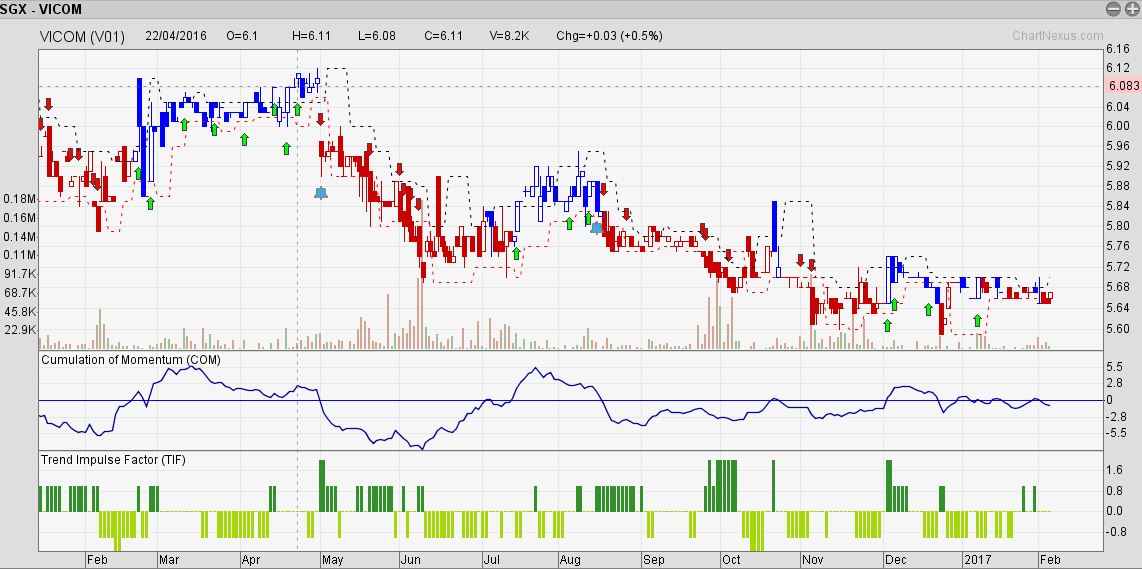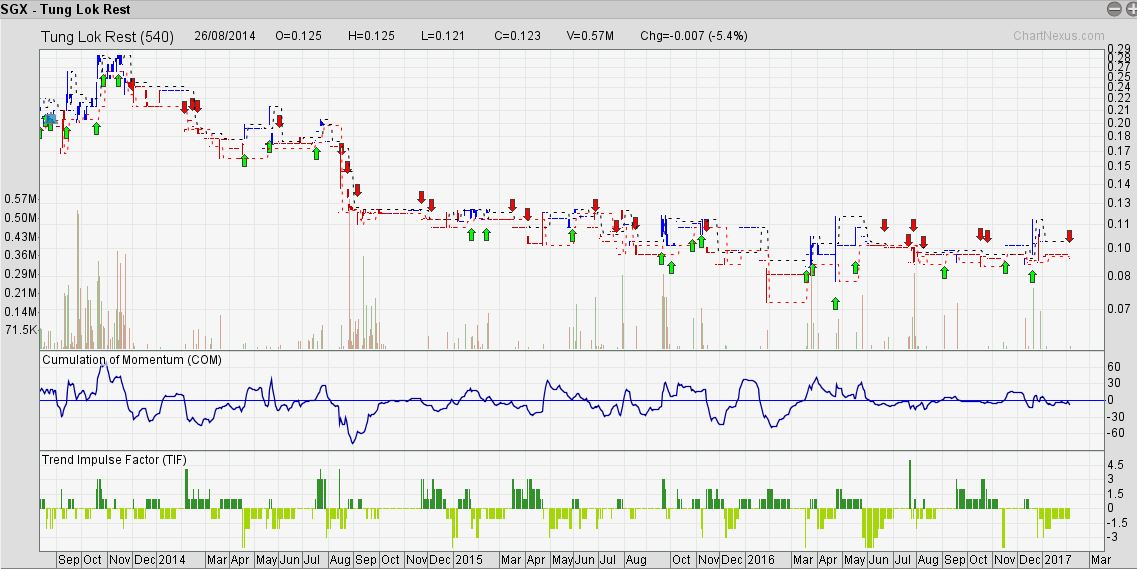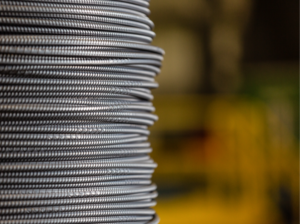Vicom & Tung Lok: Two Poorly Managed But Cash-Rich Companies
Our guest writer has just done a great post with some analysis, on TWO cash-rich companies who could well be take over targets.
Just earlier today, Bloomberg released an article noting that more than half of Singapore equities are trading below their net worth. That sounds pretty incredible, so you can read that Bloomberg article here.
Our guest writer, ever ahead of the curve, has already prepared his analysis on Vicom and Tung Lok, two cash-rich companies with poor management.
Our guest writer hails from a professional analyst background, taking a largely fundamental approach to the markets.
Note 1: These 2 counters are not suitable for trading with TradersGPS because of the low liquidity.
Buy stocks on the dip is a safe strategy, especially when the companies are sitting on a stable business model. We zoom in on Vicom Ltd (SGX:V01) and Tung Lok Restaurants (2000) Ltd (SGX:540), as they are modestly above their 52-week lows.
Vicom
While Vicom Ltd is better-known as the primary vehicle testing company in Singapore, the balance sheet revealed that the subsidiary of ComfortDelGro easily tops a bank’s privileged customer list. Vicom has doubled its annual free cash flow (operating cash minus capital expenditure) to $33.4 million between FY2010 to FY2015, beefing up to nearly $100 million in cash reserve as of September 2016. The cash is sitting in fixed deposit that is, for certain, generating less than the 2.5% p.a interest the CPF board is paying for Singaporeans’ retirement fund.
Dividend yield at 4.8% draws sharp criticisms from analysts and shareholders for being too conservative. Even at 5.8% dividend yield ($0.32/share), the company hardly trims any cash from its accounts. Against the backdrop of ultra-low interest rate environment, there is significant opportunity cost when put into banking accounts.
Although the downturn in oil and gas has caused its non-vehicle testing segment to bleed cash, the damage is akin to a needle prick to its index finger. Vehicle testing segment is comfortably in duopoly structure. Intensive vehicle usage with ride-sharing applications and the regulatory framework to import electric vehicles will continue to drive demand for Vicom services.

Tung Lok Restaurant
Food inflation at 2.1% bucked the trend of Singapore’s -0.5% deflationary climate in 2016. Tung Lok recorded revenue growth in line with its sector inflation, rising 2.3% from $38.8 million to $39.7 million between April and Sept 2016, against the same period in 2015. Although profitability increased marginally, competition between restauranteurs kept Tung Lok in the red as it made $1.4 million losses for the period.
Sitting on $10.4 million in cash, Tung Lok could pay back all bank borrowings and still be left with $7.4 million. Payables and receivables ratios have also improved year on year, cushioning the cash reserve of the company. After two consecutive rights issuances in 2013 and 2014, and a series of losses, the F&B darling has faded into the background of Catalist stocks. Should the company turn profitable, the share price is expected to jump in excitement on the first dividend since 2011.
Despite some insider purchases, the market is not convinced that F&B companies in Singapore will see thick profits amid tightening of the labour market. Being in the same trade as Jumbo Group –which skyrocketed 68% in the past one year, there remains a consolidation possibility where Tung Lok could be acquired. Lacklustre performance of management ought to be reviewed before the cash starts burning.

Conclusion: Vicom & Tung Lok Stock Picks
While fundamentals may appear solid, risks are prevalent in low-liquidity stocks. Vicom could gap higher or lower on scant volume, and Tung Lok could continue trading at 52-week lows on insider holdings. Although penny in trading value, Tung Lok is unlikely to suffer the fate of Asiasons, Blumont, Liongold (trio commonly-dubbed ABL) given its cash buffer and straight-forward business model.
One of the risk factors for these cash-rich stable businesses is conservative management. The persistent mediocre deployment of cash could be returned to shareholders. Share price catalyst will come from management hiking the dividend outlook, as capital spending tapers off in our decelerating economy.
Quoting Vicom’s Chairman Lim Jit Poh in AGM 2016, fixed deposit “gives a comfortable sleep at night.” Well, investors may be looking for something to wake up to.












